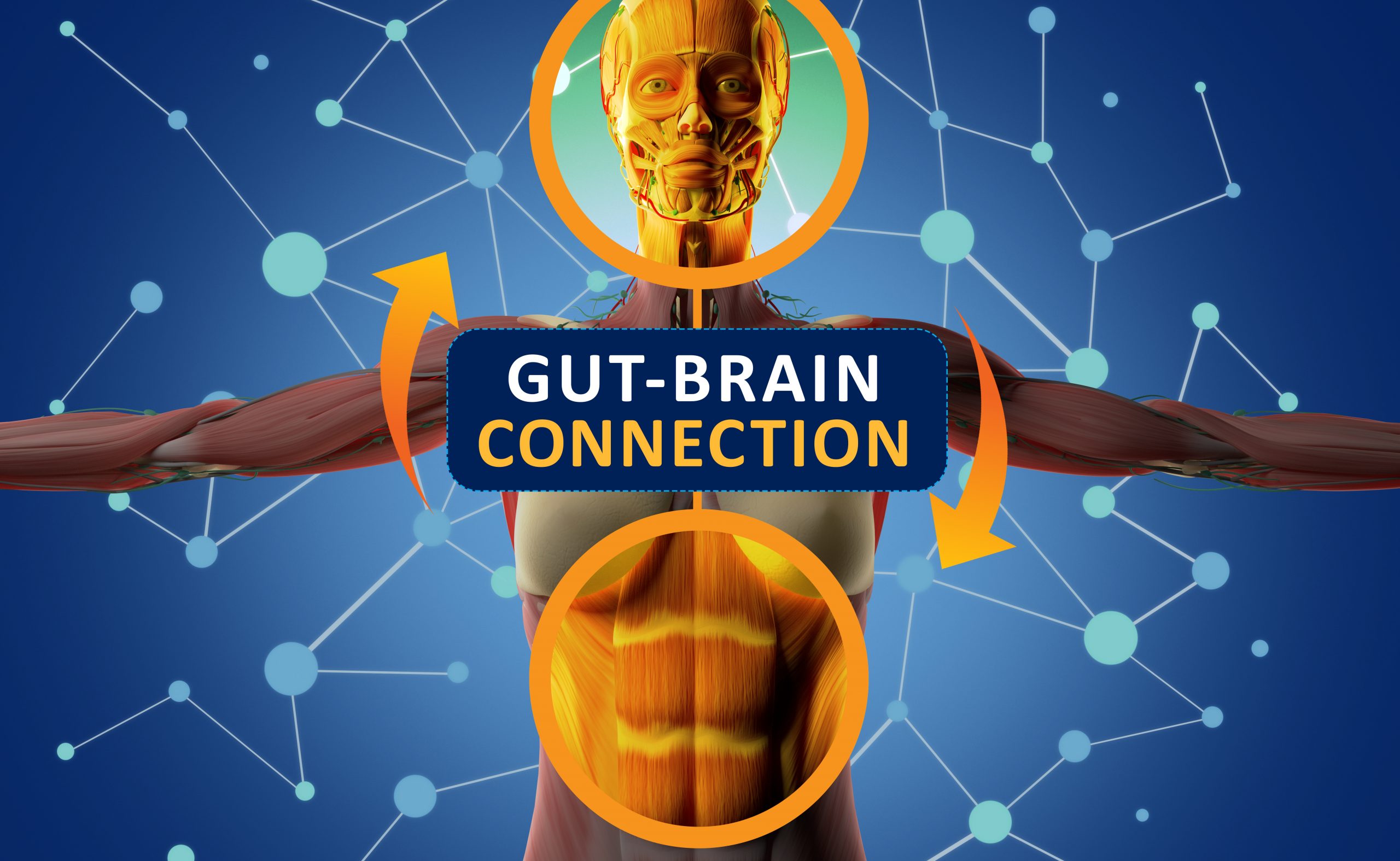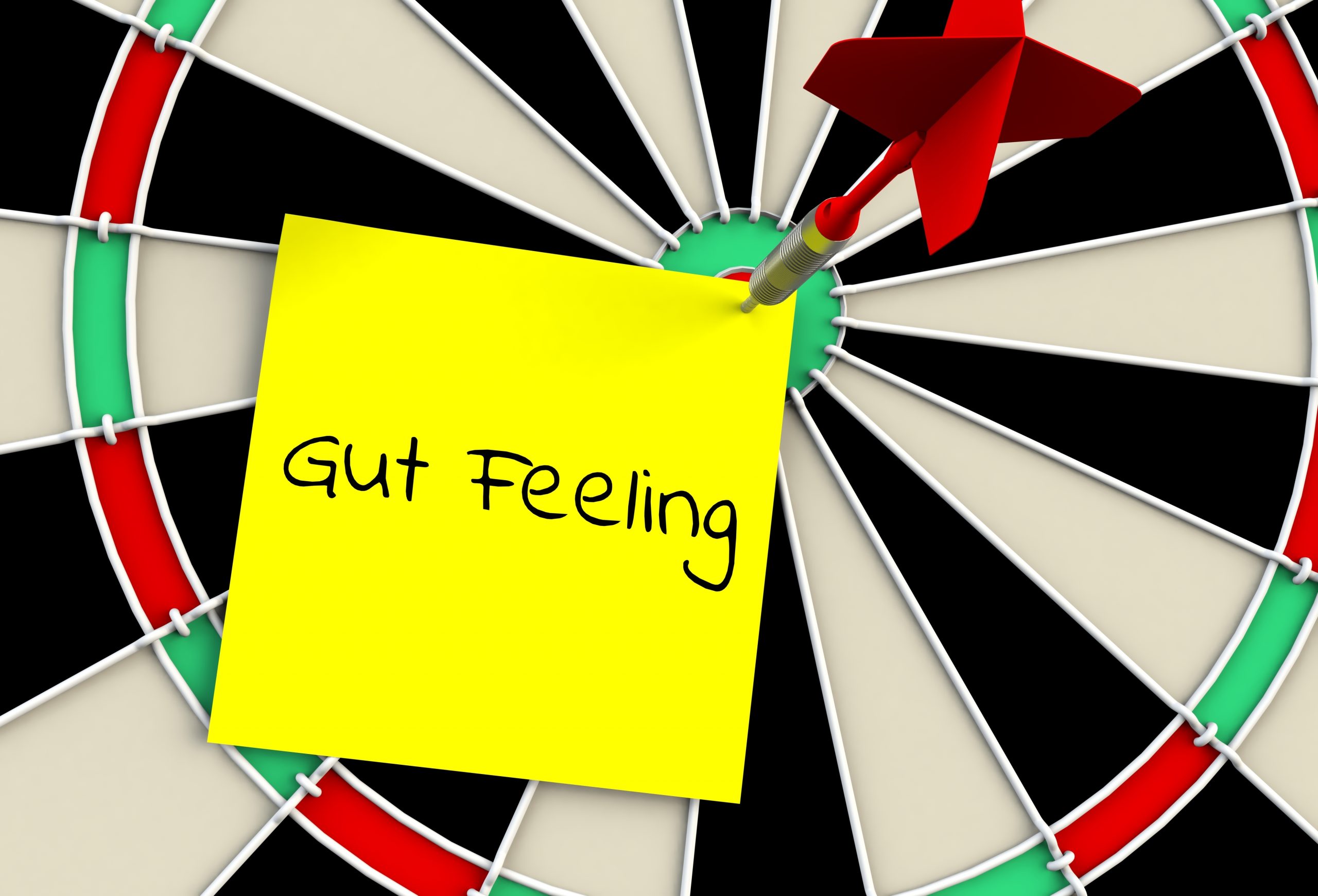Trusting your gut is something you’re likely to have said, if not done.
The idea of following some unexplainable urge that steers us toward or against something.
It can completely defy logic and what we’re able to consciously explain.
So should we listen to this deep-seated drive? Or should we display some of that rationality that makes us human?
An unlikely partnership
Well, it turns out the two aren’t actually the distinct and opposing forces we might think.
Despite our brain and our gut sitting about 2 feet apart, they actually have a close relationship.
It’s called the gut-brain axis – the system of neural pathways that link our brain and our gut.
When we hear this, we probably think of it enabling our brain to control our gut. So it may come as a surprise to learn that it’s actually a two-way relationship.
These neural pathways are bidirectional. They allow information to be relayed from our brain to our gut but also our gut to our brain.
Our brain sends information to our gut that ensures things like digestion function optimally. But in recent more years, research has shown how our gut relays messages to our brain that are used in things like decision-making.
Our second brain
We tend to view our gut as nothing more than a storage site for food. But it’s much more than that.
Our gut is a neural powerhouse in itself.
It boasts a complex neural network of some 200 – 600 million neurons (roughly the same as that within our spinal cord).
It’s called our enteric nervous system (ENS) and it’s so powerful that it’s known as our “second brain”.
But that’s not entirely correct.
It’s not really a separate network but rather an extension of our “first brain”. It’s a sub-division of our autonomic nervous system along with our sympathetic and parasympathetic nervous systems (which were discussed in Take a deep breath and blow away stress).
These are parts of our anatomy and physiology that extend so far back into our evolution that this link between the brain and gut is common among other animals, right down to the tiniest of insects and worms.
There’s actually a constant stream of information being sent from our gut to our brain. We don’t realise this because only a tiny fraction of it reaches our conscious attention.
But that’s not to say it’s having no effect. It’s influencing us unconsciously in the form of memory formation, emotional arousal and motivation.
And then there are those times when our gut speaks loud enough for us to become aware. That uneasy feeling, the butterflies in our stomach, the hunch.
When things are serious enough for us to hear our gut speaking then it’s definitely time to listen.
Ignoring our gut
The problem is we don’t. And when I say “we”, I mean us humans. Our animal cousins listen to their guts all the time. They’ve got no other option.
Ironically, we’ve successfully relied on our gut for so long is that we’ve managed to evolve and become the proud owner of a cerebral cortex.
This is the part of our brain that resembles a cauliflower and is responsible for our “higher” intelligence – things like reasoning and conscious decision-making.
There’s no doubt this part of our brain is beneficial. It’s what has created the extraordinary human-built world we live in and enjoy.
But. It also gets in the way when it comes to listening to our gut. It causes us to think too much and feel too little.
We view this “higher” power as being vastly superior to any vague hunch or butterfly in our stomach. That our first brain and it’s logic is always superior to our second brain and instincts.
And so we use this “power” to override our gut. We like to flex our ability to rationalise and control our decisions. We ignore a gut reaction in favour of a thoughtfully-crafted decision.
We’re quick – proud even – to use our brain and ignore out gut.
But in doing so, we’re missing out on those instincts that have enabled us to survive and thrive to this point in our evolution.
Listening to our gut
The issue with our “intelligent” approach is that rationality can only work with what we consciously know. And this means it’s working with only a tiny portion of the information available to us because the vast majority of our brain’s activity happens unconsciously.
The unconscious activities of our gut and brain are responsible for things like memories, emotions and motivation. Of course we’re entirely unaware of these things taking place. But that doesn’t mean they’re not happening.
Our experiences along with the emotions involved are stored in our nervous system and then influence our motivation in the future.
If we were bitten by a dog, we’ll be sure to relive that jumpy feeling when we next encounter a dog and be motivated to avoid it. The same goes for a job interview, a swimming race, all sorts of things.
We all know that heavy, uneasy feeling or those butterflies in our stomach. But what we may have not realised is they’re actually changes in the neural, hormonal and immune activities in our gut.
What we may consider to be a blind gut-reaction is actually a reflection of our brain’s extraordinary level of processing. It’s gathered and interpreted a plethora of information. It’s just that all of this has happened beyond our awareness.
However it makes us aware of all this hidden processing through an altered physical sensation that makes us feel a little uneasy. A physiological alarm bell that grabs our attention and alerts us of something wrong.
It’s the reason we can safely listen to our gut. It’s feedback. It’s instinct – a trait that has served all animals (including us) well in their evolutionary journeys. If not, we wouldn’t be here.
Intuition
It can seem like a bit of a whimsical kind of idea. It can conjure the notion of receiving messages from other worlds or entities.
But when you actually look at the word in-tuition, we can see that it’s really about being taught from within. The messages are from ourselves. And there’s no better example than being taught by our own gut.
It’s about harnessing our interoception – the sensory perception of our internal environment – to be more aware of what our body’s telling us.
By directing our attention to what we’re feeling as well as what we’re thinking, we can gain greater awareness of these somatic markers. We’ll be more sensitive to things like a heavy feeling in our stomach, an elevated heart rate, muscle tension or shallow breathing.
It may not comes easily at first. But like most things, it’s something we can develop with practice. We can learn to tune into our body’s feedback just like a radio tunes into your favourite station.
Once you’re on the same wavelength, you can then start listening to what your body is telling you.
But that’s not to say we should always favour our evolutionary-powered gut reactions and ditch deliberate decision-making. That’s no better a situation than ignoring our gut. We should use a combination of the two.
We should continue to make conscious and deliberate decisions but we should consider the sensations of our gut as we do. See it as a valuable means of cross-checking one with the other to make the most optimal decision.
That way, we can make the most of our “two brains”.








